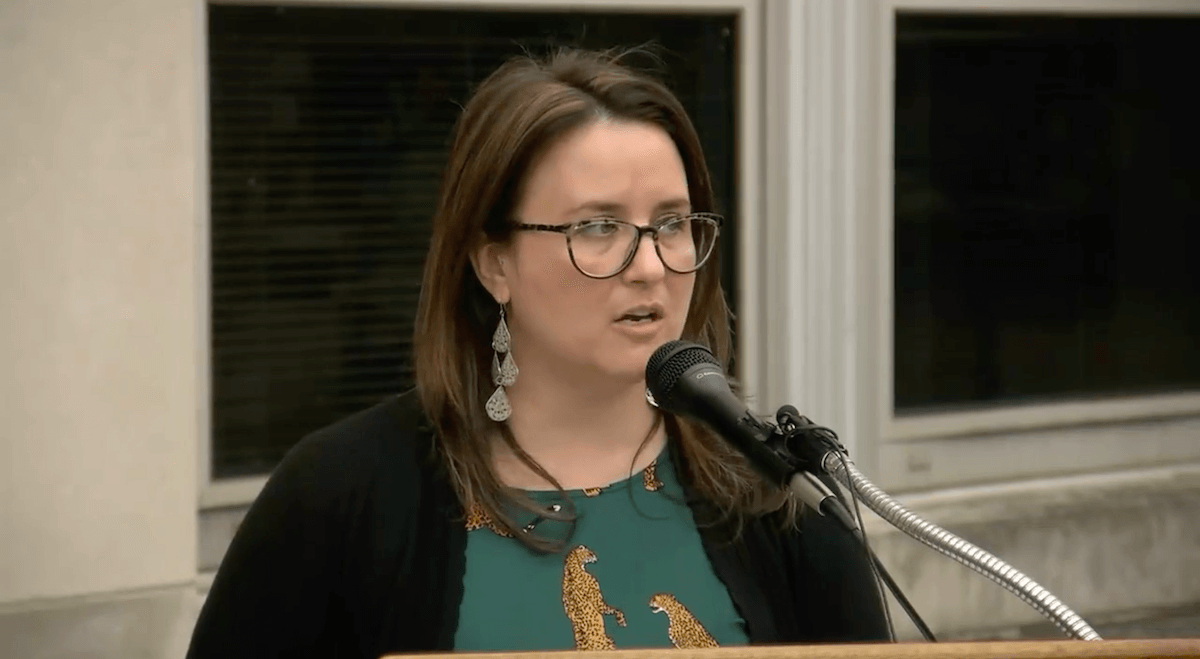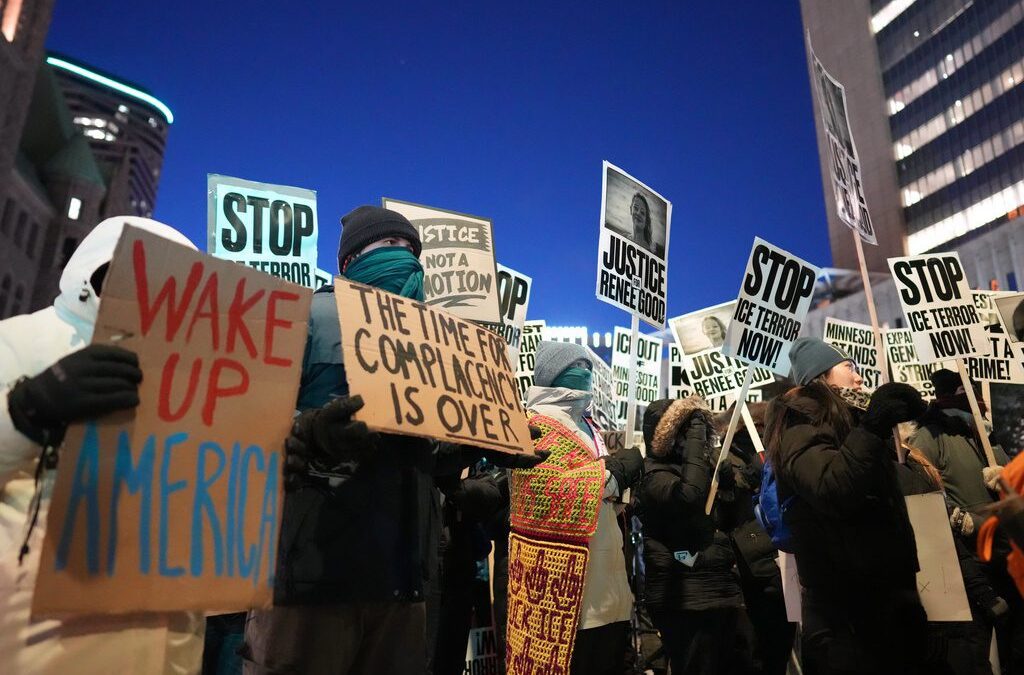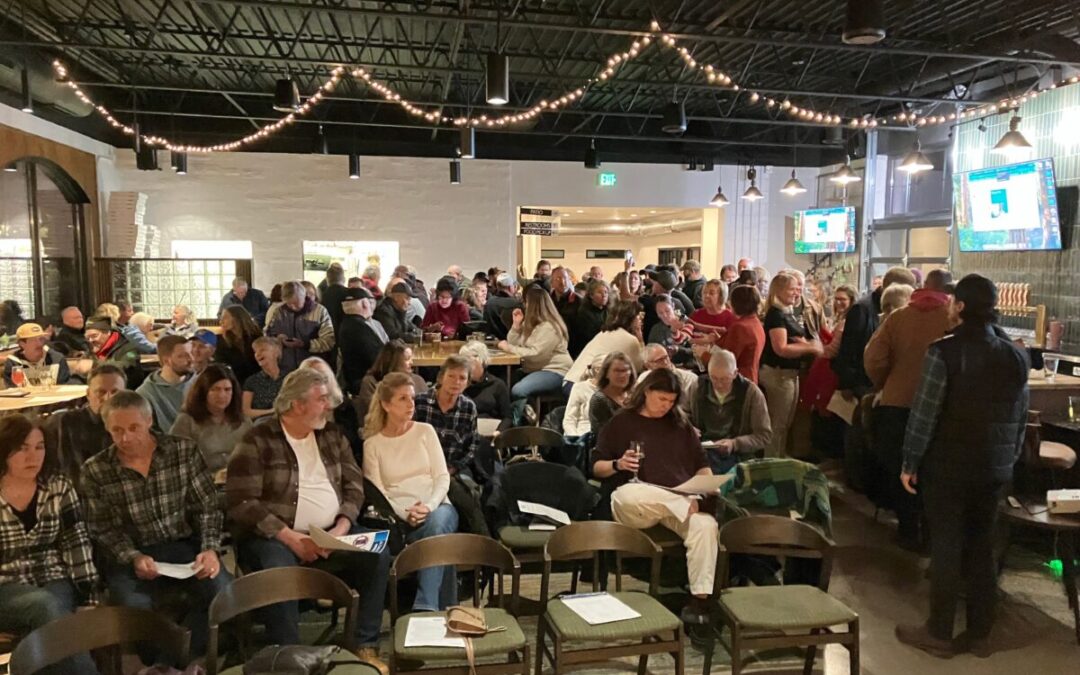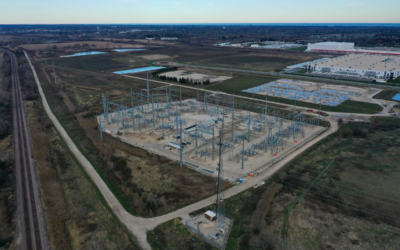
#image_title
County board member tells opponents of inclusiveness resolution, “Things are changing, whether we acknowledge it or not.”
As she read a story in Tuesday’s New York Times detailing the yearlong struggle by the Marathon County Board to adopt a seemingly simple, straightforward resolution declaring the county “a community for all,” Wausau Mayor Katie Rosenberg felt a mix of deep frustration and sorrow as her hometown attracted national attention for a reason she was anything but proud of.
“Some of those comments [in the story] were devastating,” she told UpNorthNews in reference to the racist tone of portions of the article. “I bristled. That should be so embarrassing that you just don’t say it to the media. A lot of people were outraged by this, and they should be.”
The story outlined divisiveness among County Board supervisors about a measure declaring the county as a place inclusive of all walks of life, an affirmation to people of color and others who often feel marginalized. Rosenberg and others took issue with comments in the story by resolution opponents like county Supervisor Arnold Schlei, a 73-year-old retired farmer who said white people are being unfairly portrayed as racists.
“They’re creating strife between people labeling us as racist and privileged because we’re white,” Schlei, a County Board member for 11 years, told The Times. “You can’t come around and tell people that work their tails off from daylight to dark and tell them that they got white privilege and they’re racist and they’ve got to treat the Hmongs and the coloreds and the gays better because they’re racist. People are sick of it.”
Rosenberg is a Wausau native who was elected the city’s mayor in April 2020 and is known for her affinity for that city, her appeal to younger voters, and her progressive stances on issues. As she made her way through the story, she cringed at Schlei’s comment and others downplaying the need for the resolution. Her angst grew as the number of messages to her office critical of the county where she lives piled up.
RELATED: ‘A Community For All’ Doesn’t Extend to Everyone in Some Parts of Wisconsin
As her frustration mounted, Rosenberg, a former Marathon County supervisor, decided to take action. She contacted several supporters of the resolution that was voted down 6-2 Thursday by the county’s executive committee and drafted a proclamation declaring Wausau a city that “accepts, celebrates, and appreciates diversity” and condemns hate-based activity and treatment. She then held a press conference shortly after 4 p.m. Tuesday to announce the designation.
The proclamation is Rosenberg’s way of supporting County Board members who have worked on the resolution, she said, and also serves notice that all county residents, not just the majority (the county’s population is 91% white) deserve to feel included, she said.
“If Marathon County is not going to declare that [the county] is a community for all, I have no problem with Wausau being the community-for-all leader here,” she said.
The debate about inclusivity of various populations that have often been marginalized is occurring in other communities across Wisconsin and around the nation, especially in the aftermath of the death of George Floyd at the hands of a Minneapolis police officer in May 2020 that has sparked such discussions. While many municipalities have adopted resolutions recognizing the need to be more inclusive and addressing such measures as policing reforms, others have been unwilling to do so.

In Marathon County, some supervisors from rural regions of the county said issues of race and inclusivity matter in Wausau but don’t pertain to the areas they represent. During executive committee debate on the resolution Thursday, some opponents said simply recognizing the equality of all races is a racist policy. Others said the county is not a racist place.
Such views don’t represent a changing society that is becoming increasingly diverse racially and in other ways, said county Supervisor William Harris, the first Black person elected to the Marathon County Board. He is among supporters of the resolution and spoke during Thursday’s press conference.
“We’re growing,” Harris said. “Things are changing, whether we acknowledge it or not.”
Overcoming people’s reluctance to recognize societal changes will be key to the county becoming a more inclusive community, said Harris and Yee Leng Xiong, the county supervisor who initially proposed the county ordinance in June. Negative reaction to the measure that has included references to it as “socialist” and “communist” are “very disheartening,” Xiong said.
“Racism is certainly a problem here,” he said. “But we have to be able to acknowledge that before we can start to come up with ways to address that issue.”
Despite challenges, Xiong and Harris said they believe the county can move toward a greater degree of inclusivity. They pointed to previous contentious debate about resolutions recognizing Black History Month and LGBTQ Pride Month before they were eventually approved and hope the same can happen with inclusivity.
Rosenberg said she hopes so too. People need to put their egos aside, she said, and be willing to challenge their beliefs by listening to others with different perspectives. She called on community leaders and organizations to follow her lead and publicly state the need for greater inclusivity.
“We need the community to say ‘these are our values,’ ” she said. “We need businesses to say this, and elected bodies, and our places of worship. We need to get comfortable with feeling uncomfortable so we can have these conversations that can take our community to a better place.”

Oppose ICE? Here’s how you can take action
The moment we’re in The US Senate is currently deciding whether to approve new funding for the Department of Homeland Security (DHS), including...

WI energy bills rise as Trump marks one year in office
By Judith Ruiz-Branch On the one-year anniversary of President Donald Trump’s second term, advocates for clean energy and the environment are...

AI data center plans for Greenleaf scrapped amid community opposition
The real estate company looking to bring a data center to Greenleaf has ended its pursuit of property after residents and officials made clear they...

Wisconsinites press Congress over unaffordable health insurance
By Judith Ruiz-Branch Some Wisconsinites are looking to Congress to finish what it started this week in passing a bipartisan measure which...




